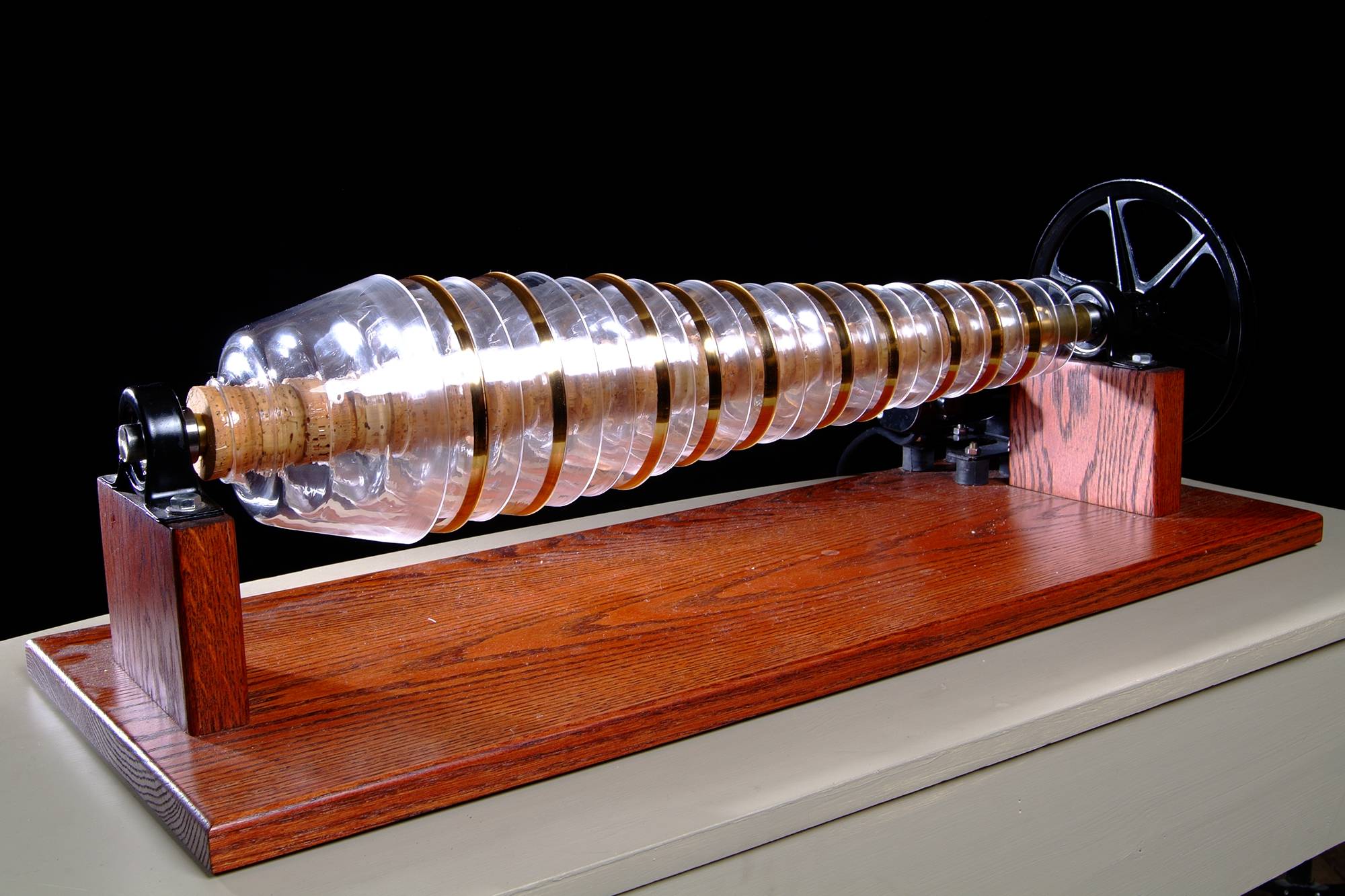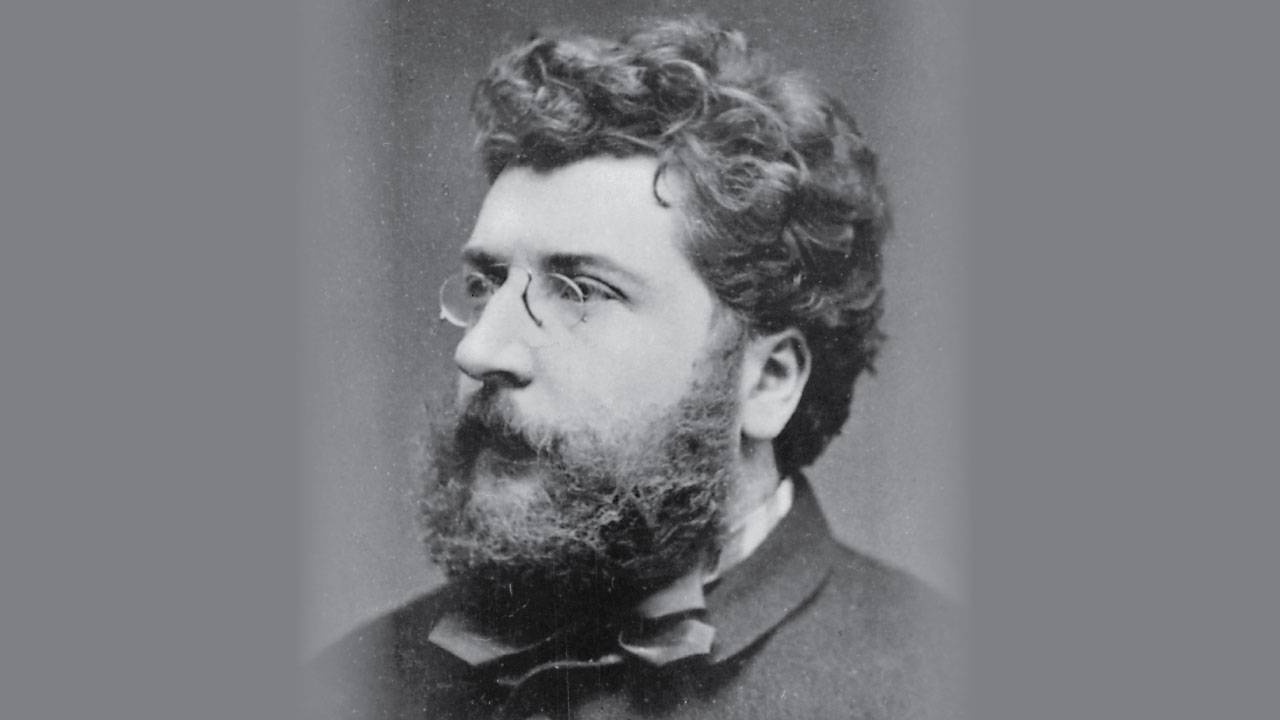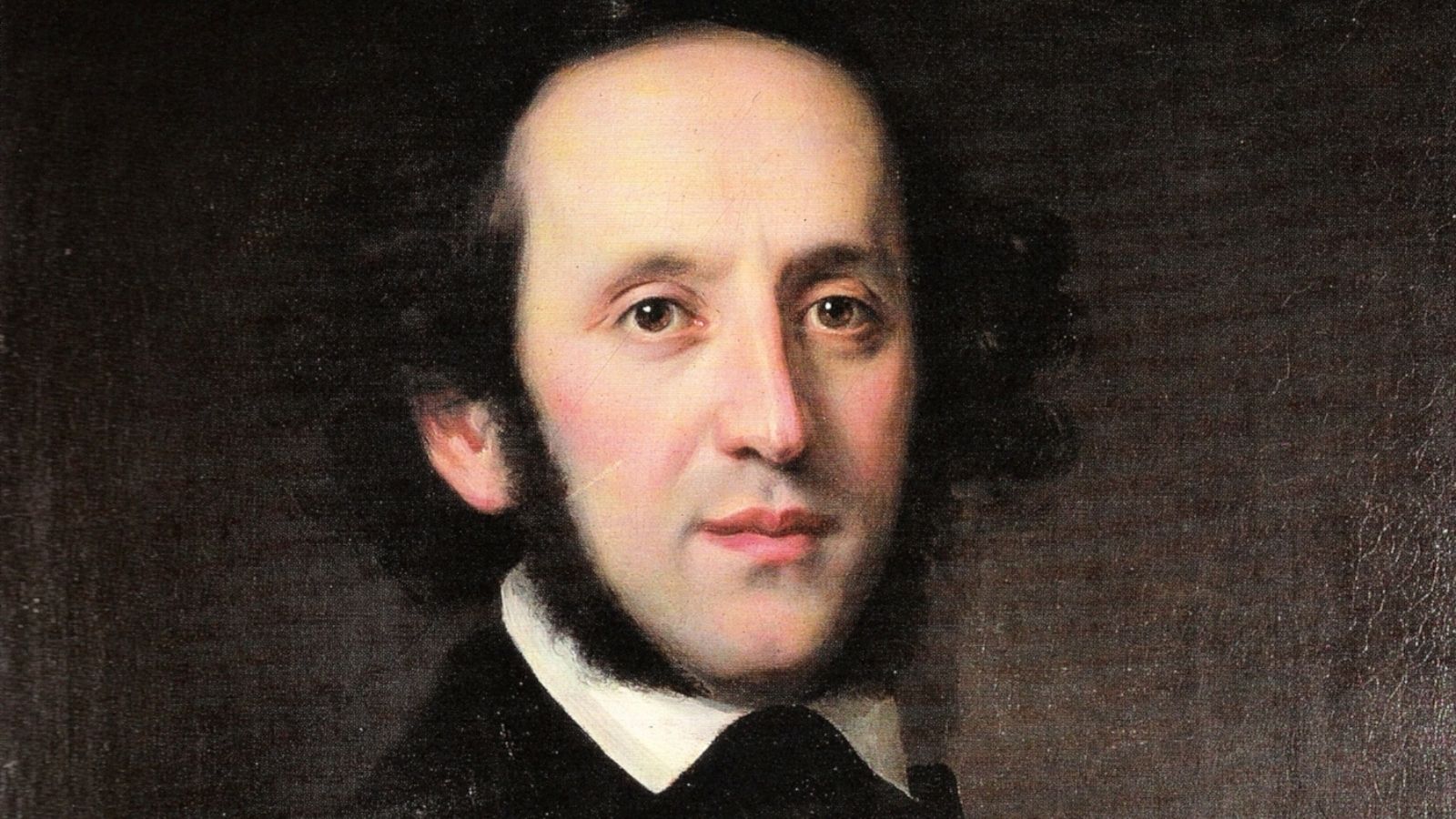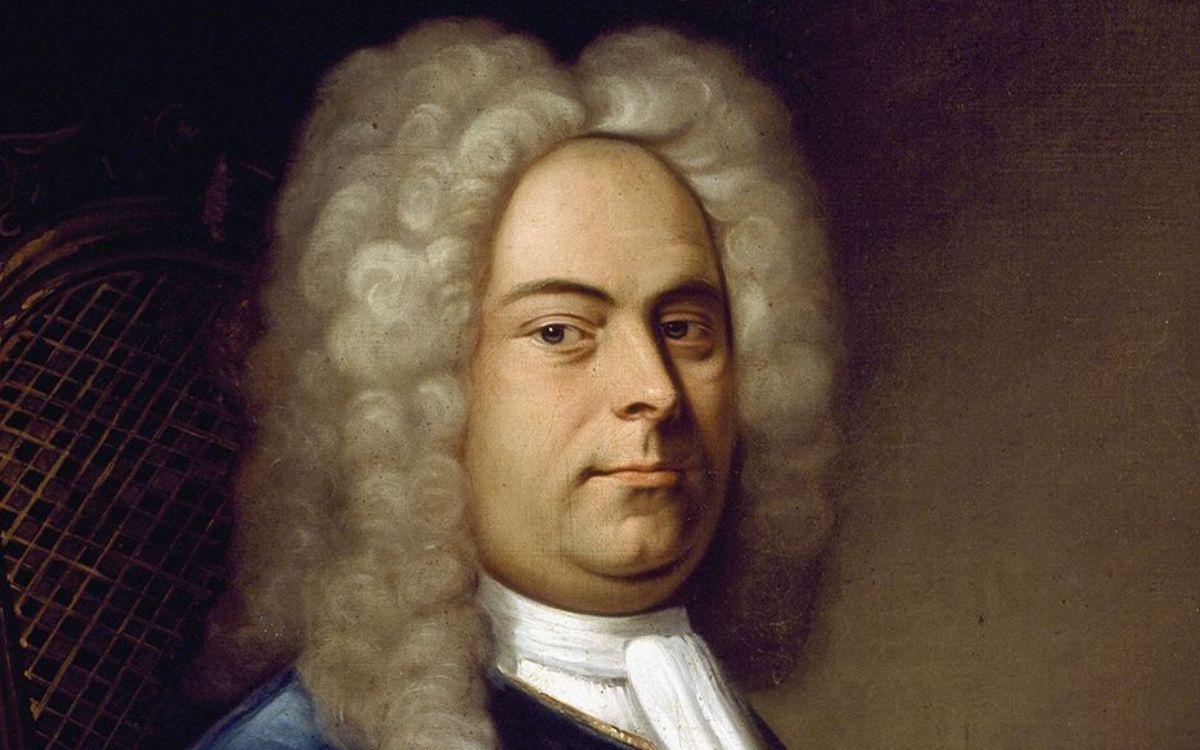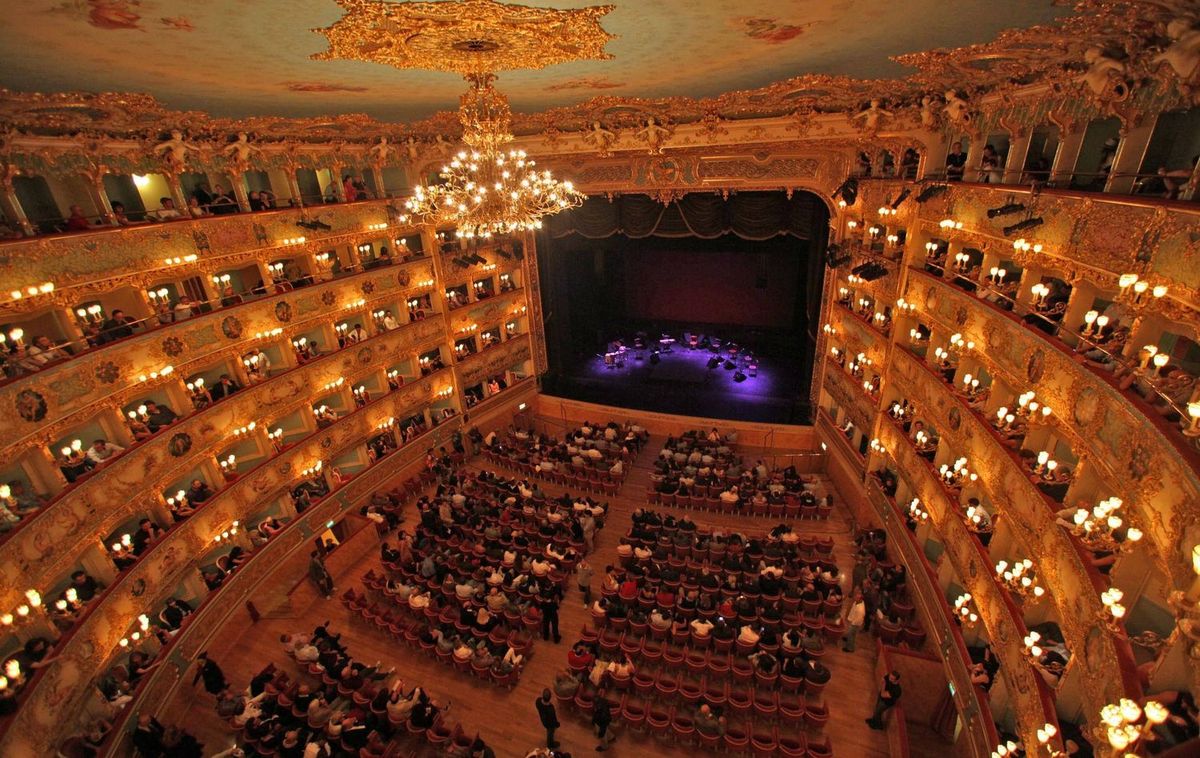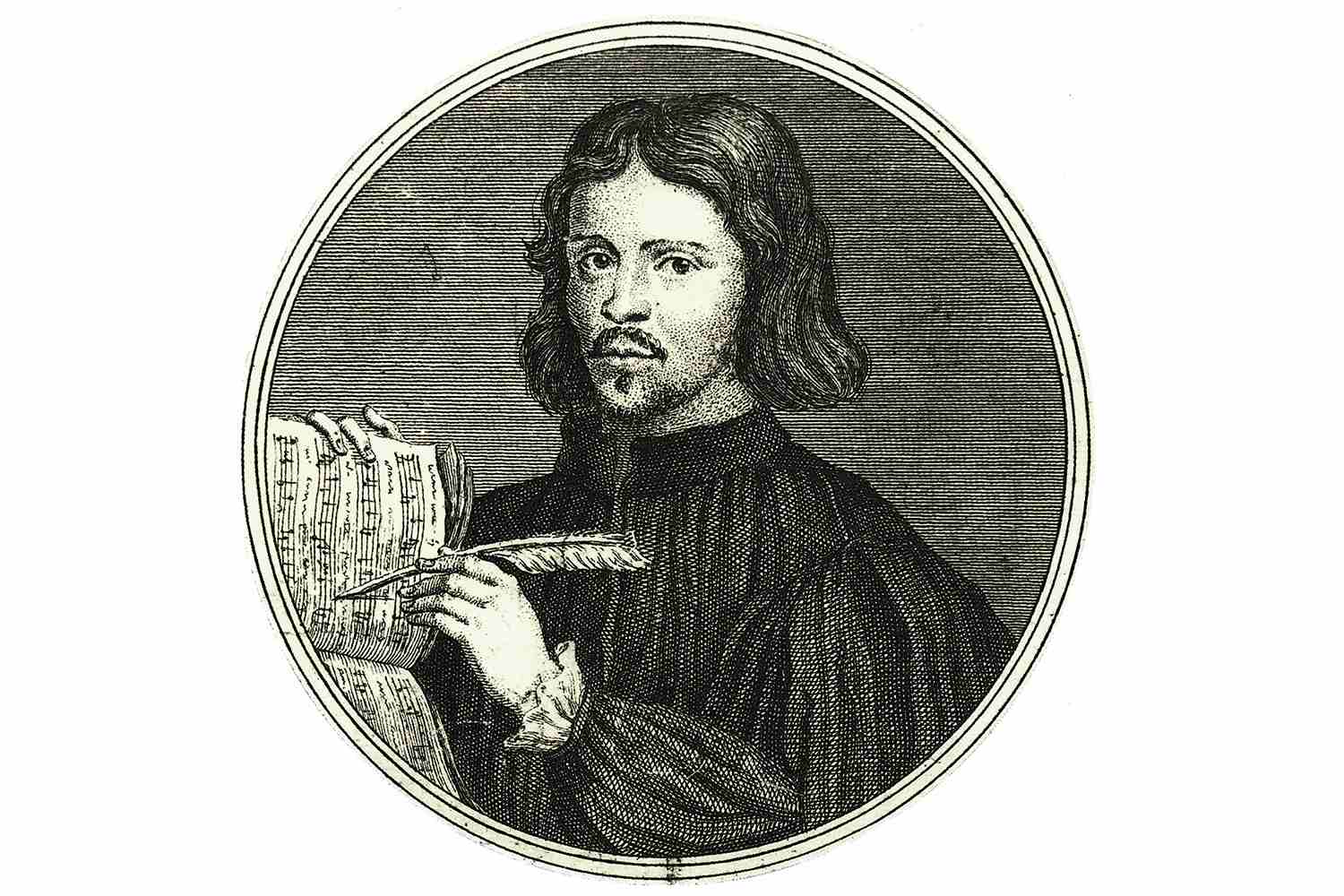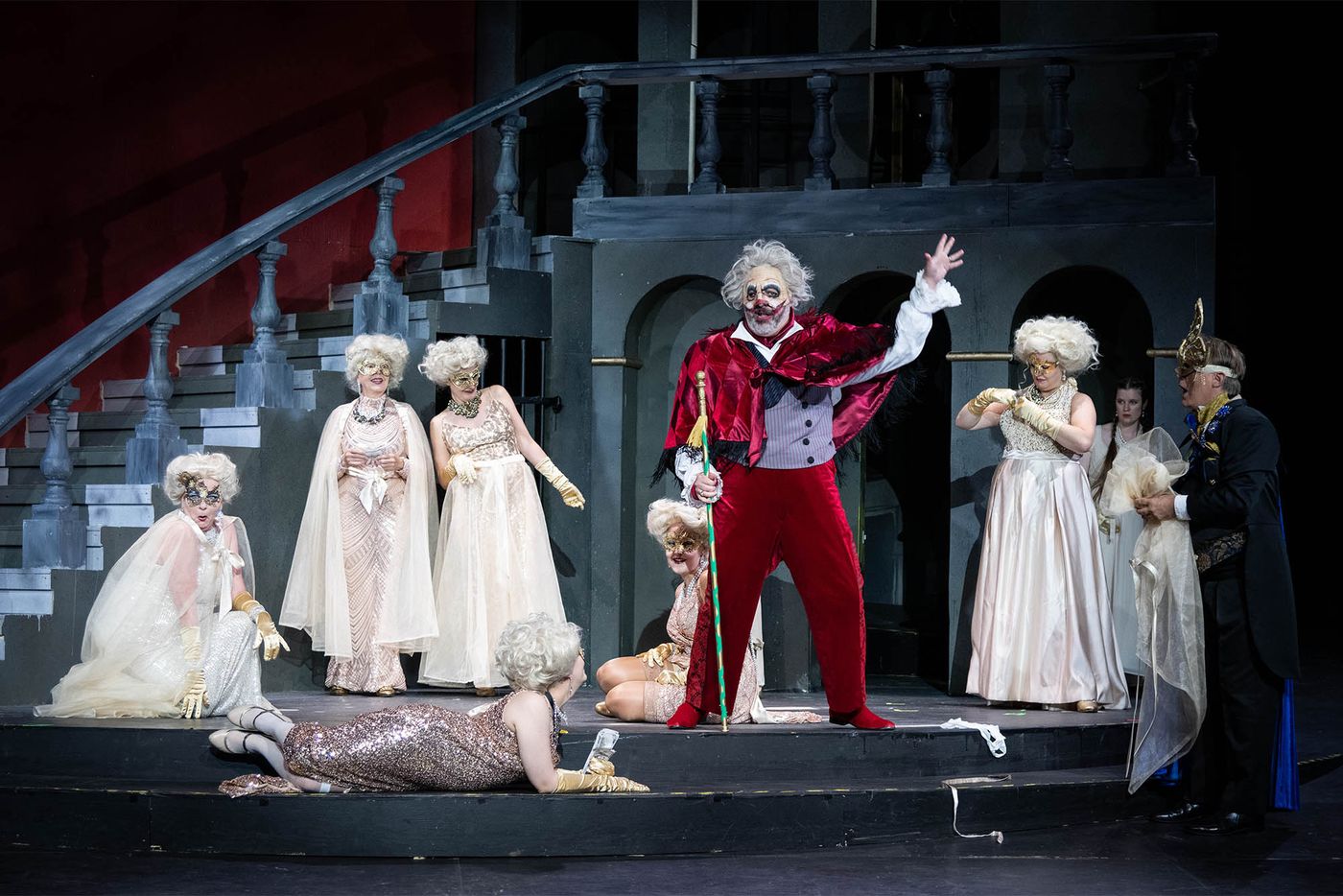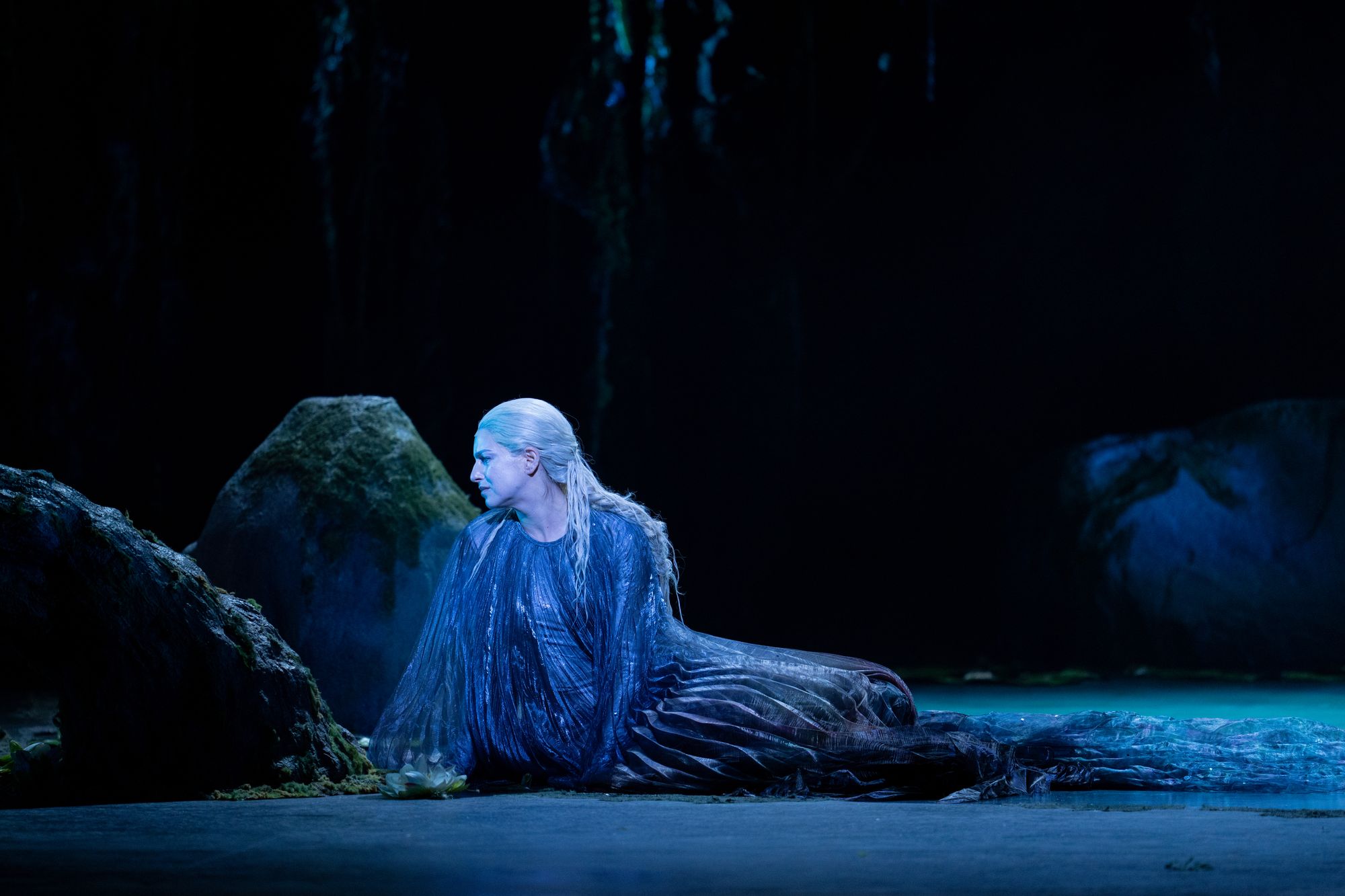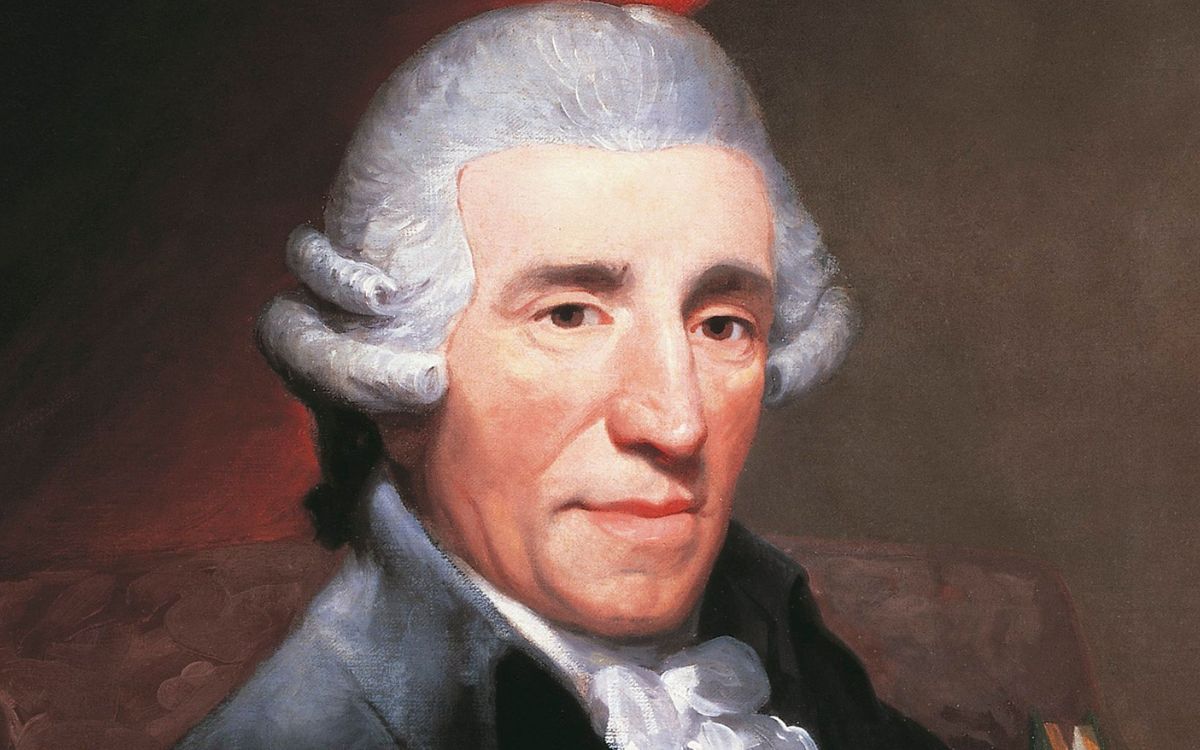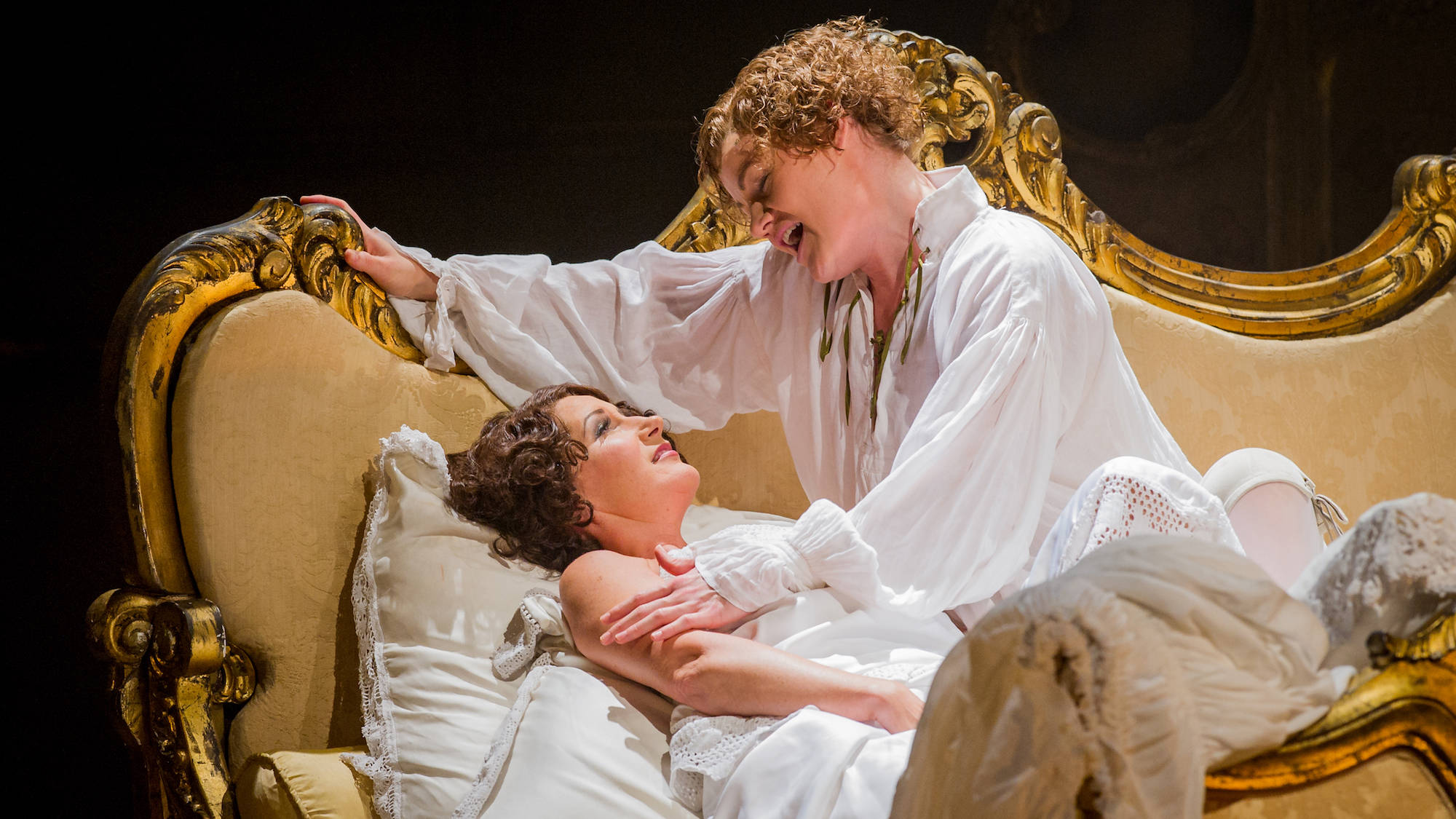Home>Production & Technology>Composer>Which Composer Created The Famous Opera Don Giovanni?
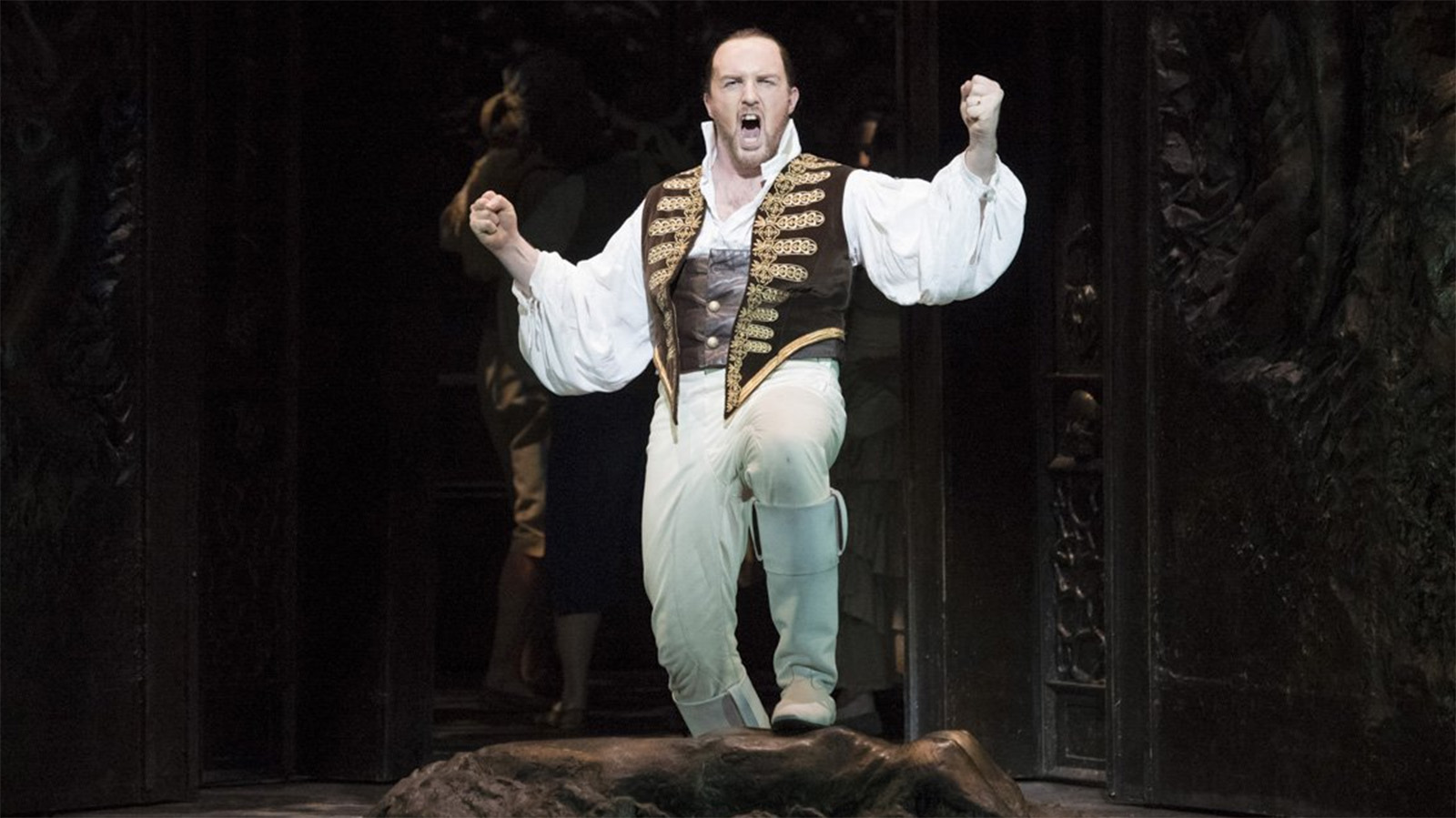

Composer
Which Composer Created The Famous Opera Don Giovanni?
Modified: January 22, 2024
Discover the brilliant mind behind the beloved opera Don Giovanni. Learn about the renowned composer who brought this timeless masterpiece to life.
(Many of the links in this article redirect to a specific reviewed product. Your purchase of these products through affiliate links helps to generate commission for AudioLover.com, at no extra cost. Learn more)
Table of Contents
Introduction
Don Giovanni, one of the most renowned operas of all time, was composed by the musical genius: Wolfgang Amadeus Mozart. This opera, with its captivating storyline and sublime music, has captured the hearts of audiences since its premiere in 1787. The tale of Don Giovanni, a notorious womanizer, and his eventual descent into darkness has continued to fascinate and entertain audiences for over two centuries.
Mozart, a prodigious composer who showcased exceptional talent from a young age, had a profound impact on Western classical music. His compositions were marked by their intricate melodies, emotive harmonies, and exceptional craftsmanship. Mozart’s ability to seamlessly blend opera with symphonic elements resulted in a unique and timeless sound that continues to captivate listeners to this day.
Don Giovanni, also known as Il dissoluto punito, ossia il Don Giovanni (The Rake Punished, or Don Giovanni), is a mix of comedy and drama, exploring themes of love, seduction, and consequences. The libretto, written by Lorenzo Da Ponte, provides a compelling narrative that delves into the complex psychology of its characters.
Throughout the opera, we witness the amorous exploits of Don Giovanni, a nobleman who stops at nothing to pursue his romantic desires. From attempting to seduce innocent women to outwitting those who try to expose his escapades, Don Giovanni’s charm and audacity are on full display. However, his actions eventually catch up with him, leading to a thrilling climax that leaves both the characters and the audience questioning the nature of love and redemption.
Don Giovanni showcases Mozart’s mastery of composition and his ability to create memorable arias, duets, and ensembles that vividly portray the emotions and conflicts of the characters. The opera’s score is a perfect balance of light and dark, featuring both lively and humorous moments alongside intense and dramatic passages. It is this combination of musical brilliance and compelling storytelling that has made Don Giovanni an enduring masterpiece.
In the following sections, we will delve into the early life and musical education of Mozart, explore his operatic career, uncover the process behind the composition of Don Giovanni, and examine the reception and lasting legacy of this extraordinary opera.
Early Life and Musical Education
Wolfgang Amadeus Mozart was born on January 27, 1756, in Salzburg, Austria. From a young age, it was evident that Mozart possessed remarkable musical talent. His father, Leopold Mozart, recognized his son’s prodigious abilities and became his first teacher and mentor.
Mozart’s early musical education began at the tender age of three, when he started playing the clavier (a keyboard instrument similar to the piano). He displayed exceptional aptitude for the instrument, quickly mastering basic compositions. By the age of five, Mozart had already started composing his own music, amazing those around him with his precocious talent.
Recognizing Mozart’s potential, his father took him on a series of concert tours around Europe, showcasing his remarkable abilities to the royal courts and aristocracy. During these travels, Mozart was exposed to a wide range of musical styles, influences, and artistic traditions. This exposure would prove to be invaluable in shaping his musical development.
At the age of 14, Mozart was appointed as the concertmaster in the orchestra of the Archbishop of Salzburg. This position provided him with the opportunity to compose and perform his own music regularly. It was during this time that he honed his skills as a composer and continued to develop his unique musical voice.
In addition to his skills as a composer, Mozart was also a gifted performer. He was skilled in playing various instruments, including the violin, harpsichord, and organ. His virtuosity and musical sensitivity allowed him to bring his compositions to life on stage, captivating audiences with his expressive and technically demanding performances.
Mozart’s early musical education and experiences laid the foundation for his later success as a composer. His exposure to different musical genres and styles provided him with a vast musical vocabulary to draw from. Mozart was not confined to a single genre or style; instead, he blended elements from various traditions to create a unique and innovative musical language.
As Mozart entered adulthood, he continued to refine his craft and push the boundaries of classical music. The influence of his early musical education, combined with his natural talent and relentless pursuit of musical excellence, set the stage for his groundbreaking compositions, including the iconic opera, Don Giovanni.
Mozart’s Operatic Career
Wolfgang Amadeus Mozart’s operatic career is as illustrious as it is diverse. He composed over 20 operas throughout his lifetime, showcasing his exceptional ability to weave captivating narratives with exquisite music. Mozart’s operas span a wide range of genres, from comedic works such as “The Marriage of Figaro” to profound dramas like “Don Giovanni” and “The Magic Flute.”
At a young age, Mozart demonstrated a natural affinity for opera. His first opera, “Bastien und Bastienne,” was composed when he was just twelve years old. It was a one-act singspiel, a form of German musical theater that combines spoken dialogue with sung musical numbers. Even at this early stage, Mozart displayed his remarkable understanding of dramatic structure and his ability to create melodic and expressive music.
As Mozart matured as a composer, he ventured into more complex and ambitious operatic works. One of his most famous operas, “The Marriage of Figaro,” premiered in 1786 and became an instant success. This comedic masterpiece, based on a play by Pierre Beaumarchais, explores themes of love, betrayal, and class struggle. Mozart’s music brilliantly captures the wit and charm of the characters while underscoring the societal tensions of the time.
Following the success of “The Marriage of Figaro,” Mozart turned his attention to the creation of “Don Giovanni.” This opera, with its blend of drama, comedy, and supernatural elements, stands as one of the pinnacles of Mozart’s operatic achievements. The complex character of Don Giovanni, his seductive exploits, and the operatic culmination of his actions continue to captivate audiences worldwide.
Mozart’s operatic career reached its zenith with “The Magic Flute,” an enchanting fairy tale opera that combines elements of fantasy and Masonic symbolism. Premiering in 1791, “The Magic Flute” cemented Mozart’s reputation as a visionary composer capable of infusing profound philosophical ideas into his operatic works.
Throughout his operatic career, Mozart displayed a mastery of musical craftsmanship and an innate understanding of the human condition. His ability to create vivid characters through music, to craft emotionally charged melodies, and to seamlessly merge drama and comedy set him apart as a true genius of opera.
Tragically, Mozart’s life was cut short, and he passed away at the young age of 35. However, his contributions to the world of opera continue to be celebrated and revered to this day. Mozart’s operas, including the timeless masterpiece “Don Giovanni,” stand as a testament to his enduring impact on the art form and his unparalleled legacy as one of the greatest composers in history.
The Composition of Don Giovanni
The composition of Don Giovanni was a monumental undertaking for Wolfgang Amadeus Mozart and his librettist, Lorenzo Da Ponte. The collaborative process between the two artists resulted in a masterpiece that continues to captivate audiences to this day.
Mozart and Da Ponte worked closely together to create a libretto that would do justice to the captivating story of Don Giovanni. Da Ponte drew inspiration from various sources, including a play by the Spanish playwright Tirso de Molina, to craft a compelling narrative filled with complex characters and intricate plot twists.
With the libretto in place, Mozart began composing the music for Don Giovanni in 1787. His approach to composition was meticulous and detailed, with careful attention given to each character and their emotional journey. Mozart’s music expertly captures the unique traits and personalities of the characters, weaving a tapestry of emotions throughout the opera.
One key aspect of Don Giovanni’s composition is its seamless integration of various musical forms. From thrilling ensemble pieces to poignant arias and powerful choruses, Mozart showcases his ability to blend diverse musical styles and create a cohesive and compelling work.
Throughout the opera, Mozart employs a wide range of musical techniques to enhance the dramatic impact of the story. From the use of recitatives to advance the plot to the intricate orchestration that accompanies the passionate moments, every musical element serves a purpose in conveying the emotions and conflicts of the characters.
An exceptional example of Mozart’s compositional brilliance in Don Giovanni is the famous Catalog Aria, where the character Leporello catalogs Don Giovanni’s countless conquests. This aria not only showcases Mozart’s melodic inventiveness but also highlights the comedic aspect of the opera.
Another notable aspect of Don Giovanni’s composition is its masterful use of the ensemble. Mozart skillfully weaves multiple voices and melodies together, creating moments of intense musical interaction that heighten the emotional impact of the opera. The finale of Don Giovanni, in particular, is a tour de force of contrapuntal writing, where multiple characters and musical themes intertwine to create a powerful climax.
Mozart worked tirelessly to bring his vision to life and completed the composition of Don Giovanni in just a few months. His commitment to excellence and attention to detail is evident in every note of the score. The result is a harmonious blend of music and drama that has firmly established Don Giovanni as one of the greatest operas ever composed.
Next, we will explore the reception and lasting legacy of this extraordinary opera.
Reception and Legacy of Don Giovanni
When Don Giovanni premiered on October 29, 1787, in Prague, it was met with both critical acclaim and enthusiastic audience response. Mozart’s masterful composition, combined with Lorenzo Da Ponte’s gripping libretto, created an opera that resonated deeply with audiences of the time.
The success of Don Giovanni extended far beyond its initial premiere. It quickly gained popularity and was performed in numerous cities throughout Europe, solidifying its place as a beloved masterpiece of the opera repertoire. The opera’s themes of love, seduction, and moral consequences struck a chord with audiences, and its universal appeal continues to endure.
Mozart’s music in Don Giovanni was considered groundbreaking for its time. He expanded the traditional operatic forms, blending elements of comedy and drama, and pushing the boundaries of vocal writing. The complexity and emotional depth of the music were praised by critics and musicians alike, recognizing Mozart’s unparalleled talent and innovation.
The character of Don Giovanni, with his unrepentant and charismatic nature, fascinated and intrigued audiences. He challenged societal norms and became the embodiment of the human struggle between temptation and morality. Don Giovanni’s complex portrayal as a compelling and morally ambiguous figure elevated the opera to new heights.
Over the centuries, Don Giovanni has remained an integral part of the operatic canon. Its enduring popularity can be attributed to its timeless themes and universal human experiences. Audiences today continue to be captivated by the intense emotions, intricate storytelling, and sublime music that Mozart so brilliantly crafted.
Don Giovanni’s influence extends beyond the world of opera. It has inspired countless artists, composers, and filmmakers, serving as a source of inspiration and a benchmark of artistic excellence. The opera’s impact can be seen in numerous adaptations, interpretations, and references in various art forms.
One particular testament to the opera’s enduring legacy is its inclusion in the UNESCO Intangible Cultural Heritage list. This recognition speaks to the significance and impact of Don Giovanni as a cultural treasure that continues to be cherished and celebrated worldwide.
The universality and timelessness of Don Giovanni make it accessible to audiences of all backgrounds and generations. It serves as a testament to the power of art to transcend time and connect people through shared emotions and experiences.
As we reflect on the reception and legacy of Don Giovanni, we can appreciate the profound impact this opera has had on the world of music and theater. Mozart’s masterpiece continues to enthrall and enchant audiences, ensuring that Don Giovanni’s place in the pantheon of great operas remains secure for generations to come.

